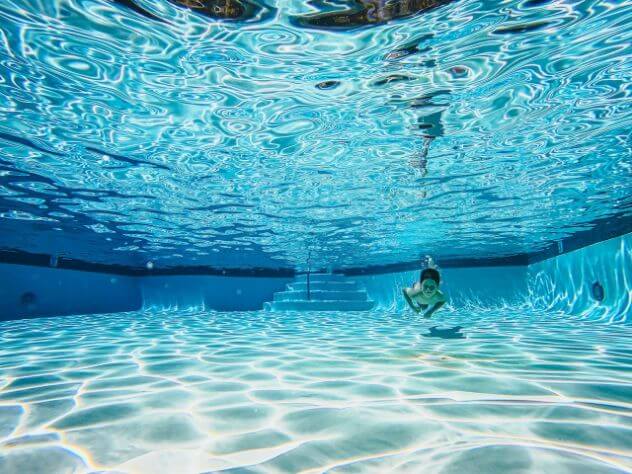Are you struggling to figure out why your pool is leaking? Whether it’s a slow trickle or unexpected burst of water on your lawn, pool leaks are a nuseince for any homeowner to deal with.
In this blog, we’ll look at the most common pool leaks and how to fix them. Ready to get started? Keep reading to learn more.
The 5 most common pool leaks & how to fix them
1. Leaking or broken pipes
What causes it: The complex plumbing system in pools can result in leaks popping up in several locations throughout the piping. This can include the return pipes, the main underground drain pipe, the skimmer pipe, and the equaliser line.
How to fix it: Pool pipes are often located underground, in awkward positions or close to the pool. Pipe relining provides a no dig solution to access these pipes without removing trees and damaging the pool.
Who to call for help: Pipe relining specialists
Does it have to be fixed right away? Broken or leaking pipes need to be repaired as soon as possible to prevent further catastrophe. Especially pipes that run nearby or into your pool.
2. Pool pump leaks
What causes it: Pool pump leaks can be caused by several issues such as a low water level, a cracked pump strainer lid, cracked pipes, a damaged impeller, an ill-fitting discharge pipe seal, a failed shaft seal, and more.
How to fix it: This will depend on the issue and the type of pool pump you have. Click here for a handy guide to fixing your pool pump leaks.
Who to call for help: Again, this will depend on the issue. Many leaks can be repaired by replacing a seal or topping up the water level. If the issue is within the pipes, a plumber or pipe relining expert will need to be called.
Does it have to be fixed right away? Pool pumps are responsible for circulating water and chemicals to keep the pool clean and hygienic. They require a fix as soon as possible to keep your pool in good condition.
3. Pool heater leaks
What causes it: A pool heater can leak from chemical or sanitiser damage, or even during the start-up after a long winter. Otherwise, the culprit could be a leaking gasket or loose connection.
How to fix it: Pool heater leaks can often be hard to troubleshoot, and what you may consider to be a leak may simply be condensation. The best way to save potential headaches is to call in a professional.
Who to call for help: Pool technicians
Does it have to be fixed right away? If you want heated water, yes!
4. Pool filter leaks
What causes it: Generally, a bad gasket or O-ring, cracks, or high pressure
How to fix it: Replacing the connections or lowering the filter pressure should do the trick, and elements such as the O-ring can be changed relatively easily.
Who to call for help: If you’re unable to repair it yourself, call your local pool technician.
Does it have to be fixed right away? Yes, a leaking pool filter can create a hazard in and around the pool.
5. Pool liner leaks
What causes it: The pool liner overlays the surface of the pool to protect it from damage, retain water and give a cohesive look. Pool liners can last anywhere between 8 to 20 years, and improper use or old age can result in leaks.
How to fix it: Identify where the leak is coming from and repair it with a patch material.
Who to call for help: Your local pool technician or pool shop.
Does it have to be fixed right away? Yes, the leak could grow and become a larger issue.
Areas of a pool that experience leaks
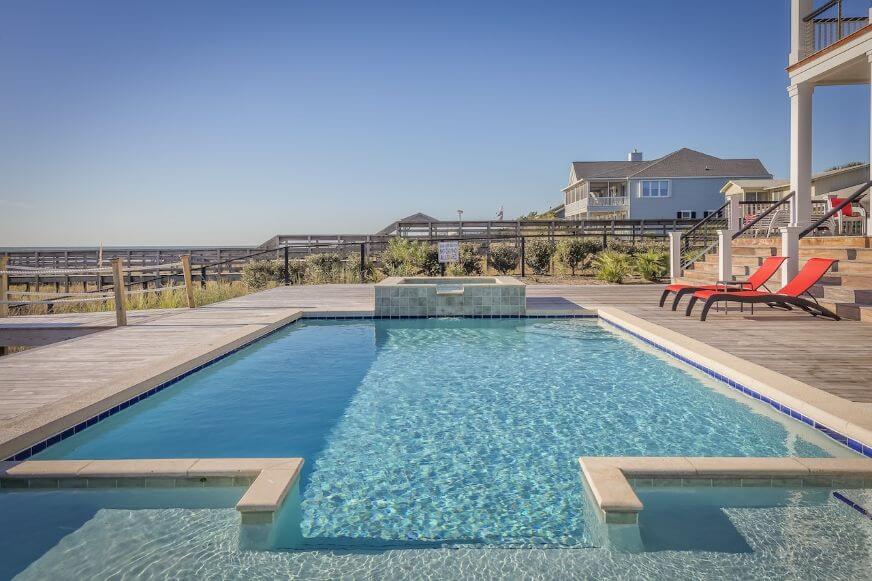
Suction side leak
- Occurs in your plumbing before reaching the pool’s impeller
- Usually caused by air drawn into the pipes when the pump is on
- Can generally be repaired with pool putty or silicone as a short-term fix
Pressure Side Leak
- Occurs in the plumbing after reaching the pool’s impeller
- Caused by a crack on glue joints, pipe fittings or threaded joints where PVC connections occur
- Can be patched with pool putty or sealant as a short-term fix
Underground Leak
- Caused by Sydney’s extreme weather changes along with old age and pipe damage
- Will require pipe relining or replacements
- Requires specialised equipment to repair
How pipe relining can protect your swimming pool
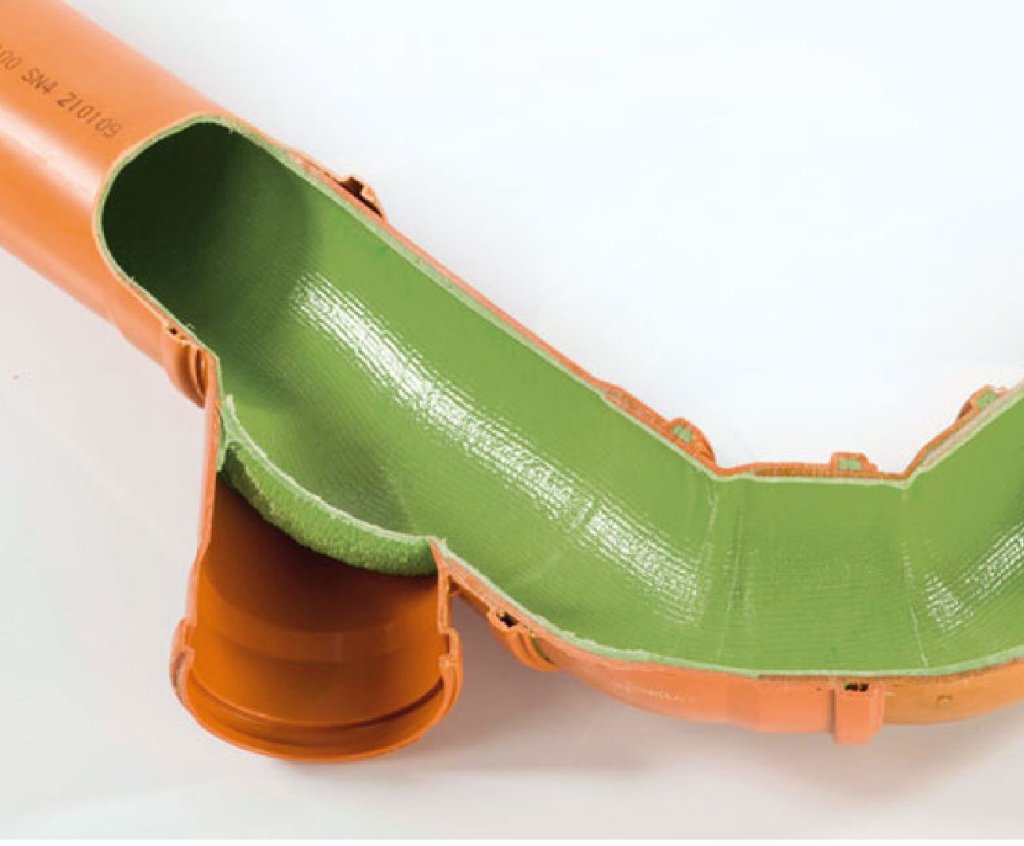
While we do not deal with pool pipes directly, often we find the sewer or stormwater pipes are blocked and have been dug dangerously close to a pool.
In this instance, pipe relining becomes worth its weight in gold as your blocked pipes can be repaired without interfering with your pool.
It’s important not to delay the repair of your sewer pipes wherever they are positioned on your property, but if they are near your pool, a cracked sewer pipe could lead to a flooding disaster.
In one Sydney man’s instance, a break in his sewer pipes resulted in thousands of litres of sewer water flooding his pool. Read the full story here.
The story of a Sydney resident who saved her swimming pool with pipe relining
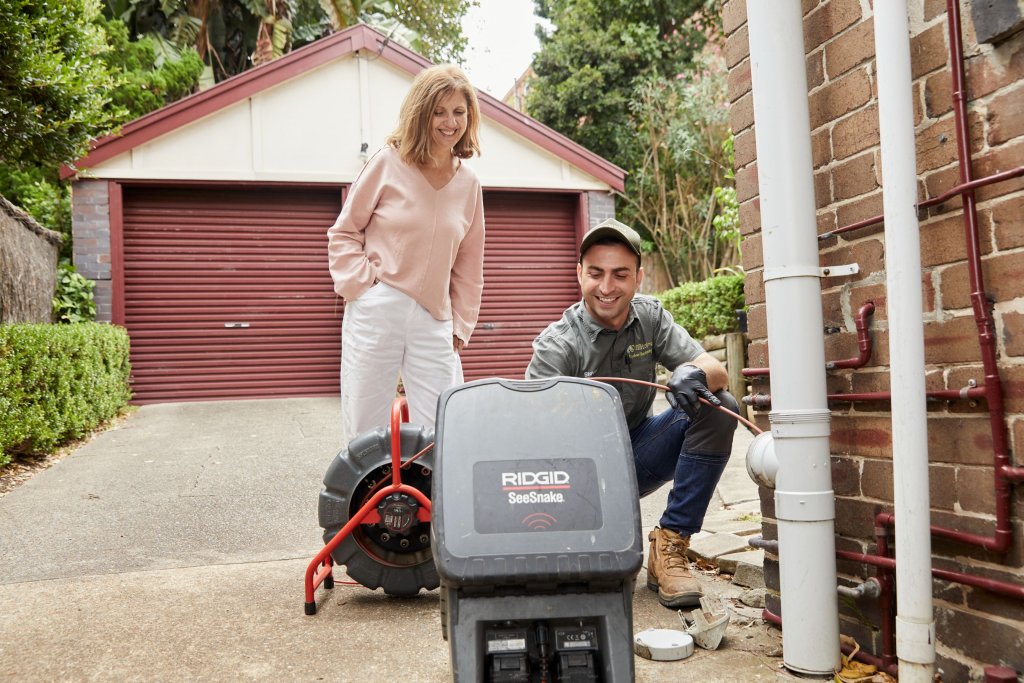
At a residential home in Drummoyne, a CCTV inspection discovered a damaged pipe alongside their swimming pool. The main pipe that collects water from both sides of the house was crushed by a paperbark tree sitting directly on top of the pipe.
The pipe was impossible to replace, as it was located right next to the swimming pool. Moreso, the tree responsible for the crushing was providing essential privacy between the client and his neighbours. Pipe relining was the answer.
We spent 4 days grinding away at the crushed pipe robotically to reopen the internal diameter back to its ideal size. Once this was complete, we relined the damaged section of pipe using a glass-reinforced liner coated in epoxy resin to provide extra thickness and strength to handle the tree’s weight. The result was a fully repaired, strengthened pipe without disturbing the tree, the pool or the client’s privacy.
Fix damaged sewer pipes without digging up your swimming pool
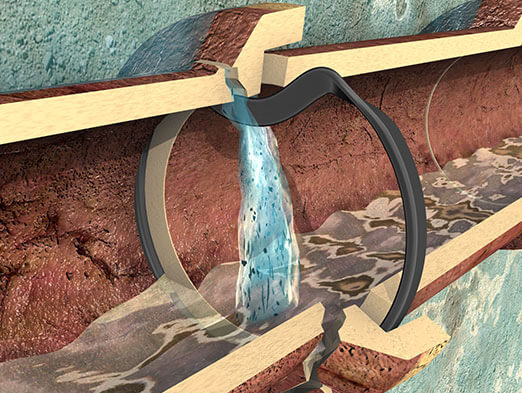
Pools can be fickle things, and if you have a pipe nearby causing issues, or you have a leak within the pool itself, a quick and effective repair is a sure way to save yourself both time and money.
If you need help with the sewer pipes located near your Sydney pool, get in touch with our experienced crew today. We can perform a free consultation to inspect the damage and come up with a plan to keep your backyard intact and your pipes flowing perfectly.
Back to Top